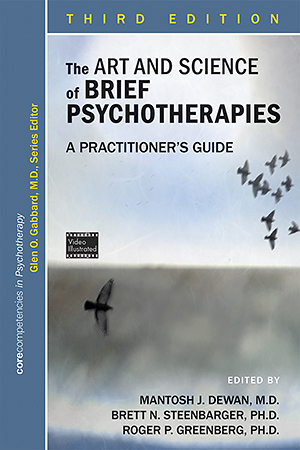Sections
Excerpt
The goal of this book and all psychotherapy training programs is to produce good therapists. But how do we know when we have succeeded or, perhaps more important, failed? There is increasing agreement that we need to first define our desired end point, a “good therapist.” Simply stated, good therapists heal their patients. They deliver consistently and measurably good clinical outcomes for the patients they treat. This is a major conceptual shift beyond our current practice of evaluating only therapists’ adherence to a model when assessing the effectiveness of those therapists by measuring their patients’ outcomes. This is the missing ingredient in most training programs.
Access content
To read the fulltext, please use one of the options below to sign in or purchase access.- Personal login
- Institutional Login
- Sign in via OpenAthens
- Register for access
-
Please login/register if you wish to pair your device and check access availability.
Not a subscriber?
PsychiatryOnline subscription options offer access to the DSM-5 library, books, journals, CME, and patient resources. This all-in-one virtual library provides psychiatrists and mental health professionals with key resources for diagnosis, treatment, research, and professional development.
Need more help? PsychiatryOnline Customer Service may be reached by emailing [email protected] or by calling 800-368-5777 (in the U.S.) or 703-907-7322 (outside the U.S.).



